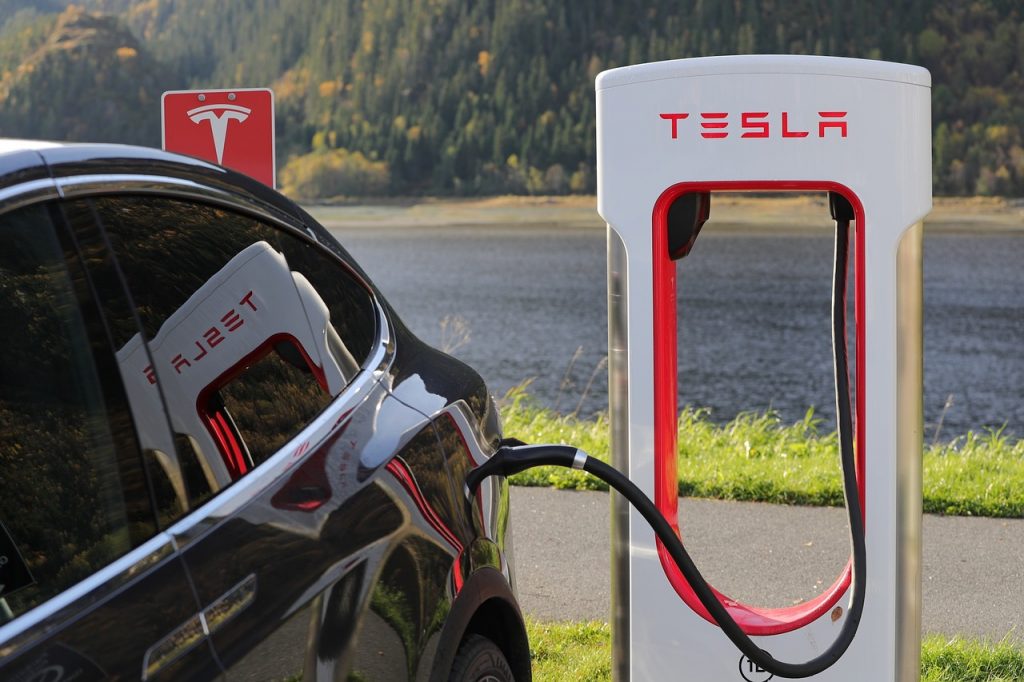EV Charging Stations Will Soon Be In Every US State
As part of the National Electric Vehicle Infrastructure Formula Program in conjunction with the Department of Transportation's funding approval, all states can begin to take advantage of federally available funding to begin constructing electric vehicle chargers for every 50 miles of roadway.
This article is more than 2 years old
Electric vehicle owners got some good news yesterday. The US Transportation Department officially approved funding requests from each state to construct new EV charging stations. The funding for this massive project comes as part of the recent Infrastructure Bill passed by Congress and signed by President Biden.
Included in the bill was something called the National Electric Vehicle Infrastructure Formula Program. The goal is to beef up charging infrastructure across the US, particularly along the nation’s highway and interstate systems. And that means a lot of EV charging stations are needed to cover over 75,000 miles.
The goal is to construct EV charging stations over the next five years, and there is $5 billion available for the expansive project. All states, Puerto Rico, and the District of Columbia have access to the funds. Ideally, the Biden administration would like states to install chargers every 50 miles.
Per an NPR news report, “Today, states have the approval to access $1.5 billion of that funding so they can deploy chargers that the Department of Transportation estimates will cover some 75,000 miles of highway.” For funding, states had to submit their plans and a proposal to the Joint Office of Energy and Transportation. And those funds can go to more than just the construction.
States can use the funds as they see fit, including advertising, upgrades to current EV charging stations, maintenance, and upkeep. There are strings, however. Every state must prioritize the construction of charging stations on interstate corridors.
And each location must have a minimum of four fast charge ports, that work with every EV brand. The Biden Administration prefers the installation of Level 3 fast chargers. Some of these fast charging stations can get drivers up and running in as little as 15-45 minutes (depending on the vehicle).

However, most EV charging stations currently available on roadways are Level 2. And they take approximately 5 hours to complete each charge. So upgrading the existing infrastructure may be just as important as building new locations.
However, the speed of future charging stations is not the main hurdle states face. It is the cost that will cause the greatest issue. The chargers are spendy, coming in at $30,000-$140,000 each (just for the hardware).
On top of that, most current charging stations sit idle due to a lack of vehicles to service. So, the rate of return is fairly poor in most areas, which does not create a huge incentive to build. Despite that, the administration hopes to achieve its loft goals by the end of the five-year program.
The White House hopes to have 500,000 new chargers installed within five years. For perspective, there are 1,000 charging stations currently gracing the national interstate system. And at the current cost per charger, the amount allocated in the Infrastructure Bill simply isn’t enough.
But for the White House, it’s positive news and a step in the right direction. According to CNBC, the acting Federal Highway Administrator Stephanie Pollack stated, “With this greenlight, States, the District of Columbia and Puerto Rico can ramp up their work to build out EV charging networks that will make driving an EV more convenient and affordable for their residents and will serve as the backbone of our national EV charging network.”



